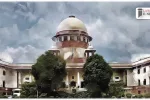Supreme Court Upholds Trial in Cheating and Fraud Case, Rejects Petitioner’s Plea for Quashing Proceedings: ensuring a balance between the accused’s freedom and the right of prosecution

In a significant ruling, the Supreme Court of India has upheld the trial in a case involving allegations of cheating and fraud. The judgment, delivered by Justice Dipankar Datta, rejected the petitioner’s plea for quashing the criminal proceedings. The court emphasized the need to exercise caution while invoking the jurisdiction under Section 482 of the Code of Criminal Procedure (CrPC) to quash charges, ensuring a balance between the accused’s freedom and the right of prosecution.
The case revolves around a complaint filed by the second respondent, leading to the registration of an FIR under various sections of the Indian Penal Code (IPC). The FIR accused the petitioner and others of conspiring to cheat and defraud the second respondent, involving a substantial sum of money. While the charge-sheet did not clearly establish the petitioner’s role in one specific offense, it identified her as a conspirator.
During the proceedings, the petitioner submitted additional documents, including an agreement and statements, to support her defense. However, the court deemed these documents irrelevant at the stage of quashing the proceedings and noted that they should be considered during the trial.
The court examined the principles governing the exercise of power under Section 482 of the CrPC. It highlighted that quashing charges should be done sparingly and only when the allegations are patently absurd or inherently improbable. The court also emphasized that the trial court should not conduct a detailed examination of evidence while framing charges or deciding on quashing petitions.
The judgment further discussed the limited scope of the court to ascertain the outcome of the trial and the duty to prevent abuse of the legal process. It cautioned against using the court’s power to determine guilt or innocence at the initial stage, emphasizing the need for the trial to proceed in order to establish the extent of the petitioner’s involvement.
Additionally, the court expressed concern over an affidavit filed by a police officer, highlighting its incorrect interpretation of legal provisions. While refraining from taking further action, the court warned the officer to exercise caution in the future and promote awareness among police officers regarding legal provisions and their impact on pending criminal proceedings.
In conclusion, the Supreme Court dismissed the petitioner’s appeal, upholding the High Court’s decision to reject the plea for quashing the proceedings. The trial court was directed to proceed with the trial, free from any influence from the observations made in the judgment.
This ruling serves as a reminder of the cautious approach required while deciding on quashing petitions and the importance of ensuring a fair and impartial trial to determine the truth in criminal cases.
Quotes from the Judgment:
– “This is not an appropriate stage to delve deep into the records. It is no part of the business of any of the courts to ascertain what the outcome of the trial could be, conviction or acquittal of the accused.” (Para 17)
– “It is not one of those rare cases where the uncontroverted allegations appearing from the materials on record notwithstanding, it can successfully be contended that even no prima facie opinion can be formed pointing to the commission of any offence by the petitioner.” (Para 18)
– “The court is not expected to marshal the records with a view to decide admissibility and reliability of the documents or records but is an opinion formed prima facie.” (Para 27.10)
Date of Decision: July 4, 2023
SUPRIYA JAIN vs STATE OF HARYANA AND ANR.





